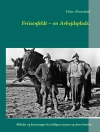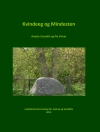This ethnographic study of a mixed-occupancy housing estate near the centre of London refocuses the scholarly conversation around social housing in the UK after the 1980 Housing Act. As well as examining the long-term consequences of ‘Right to Buy, ’ such as shortages in local authority stock and neighbourhood gentrification, James Rosbrook-Thompson and Gary Armstrong investigate the changes wrought on the social fabric of the individual estate. Drawing on four years of ethnographic fieldwork, the authors explore the estate’s social mix and, more specifically, the consequences of owner-occupiers, council tenants and private renters sharing a cramped inner-city neighbourhood.
Mixed-Occupancy Housing in London: A Living Tapestry humanizes the academic discussion of class, race, and gender in social housing through the occupants’ tales of getting by, getting along and getting out.
Table of Content
1. Introduction: A Living Tapestry?.- 2. Setting the Scene.- 3. Mixed Occupancy – Mixed Occupations?.- 4. Custodians of (Dis)order: The Pusher, the Publican and the Matriarch.- 5. Rubbing Along: Proximity and Understandings of Difference.- 6. Habitable Space? The Price of Gentrification.- 7. Mater out of Place? Women, Mobility, Livelihood and Power.- 8. Conclusion: The Tapestry Unpicked?.
About the author
James Rosbrook-Thompson is Senior Lecturer in Sociology at Anglia Ruskin University, UK. He is an urban sociologist whose research interests include ‘race’ and ethnicity, citizenship and belonging, youth delinquency, and sport.
Gary Armstrong is Reader in Sociology at Brunel University, UK. He has written extensively on surveillance, youth delinquency, football hooliganism, and sporting cultures in a range of settings including Liberia and Malta.












